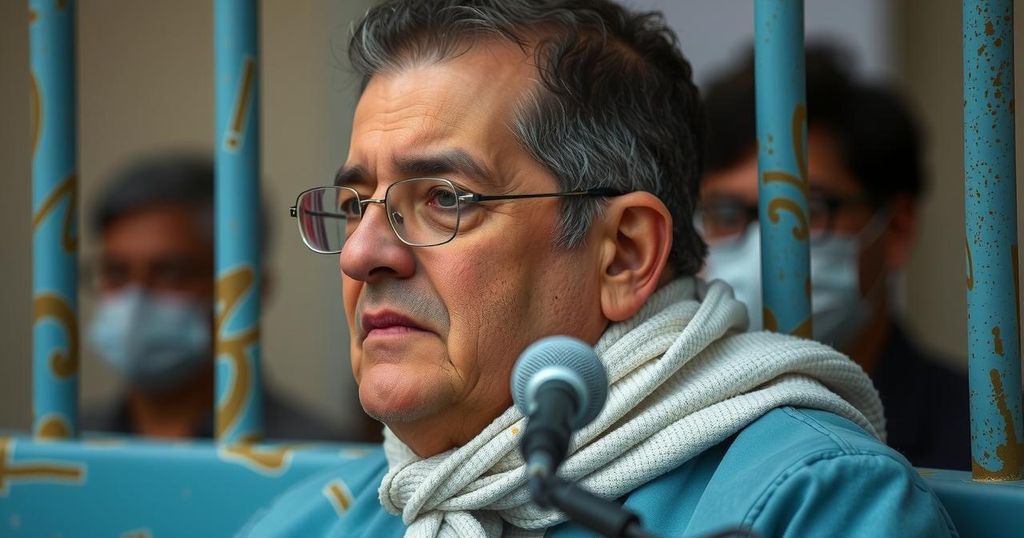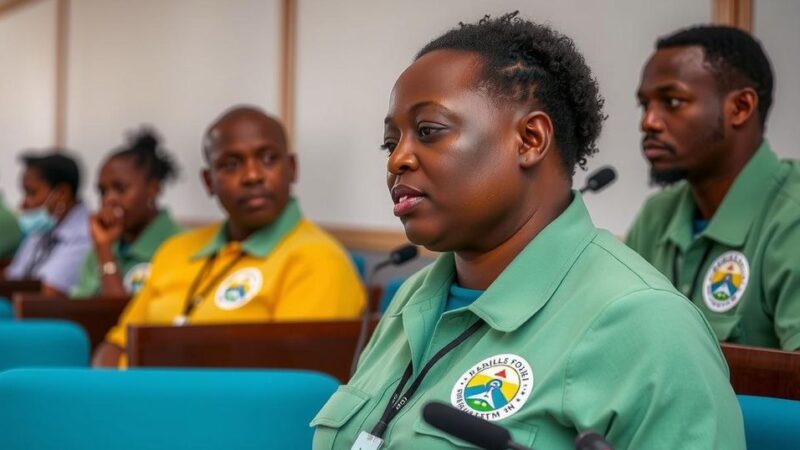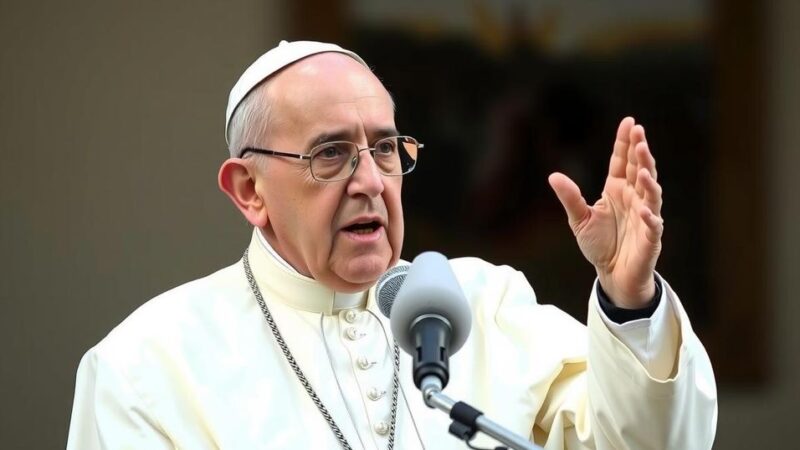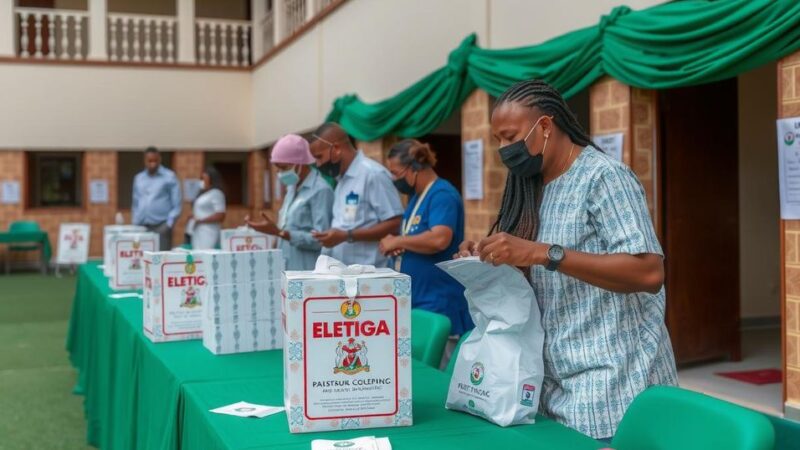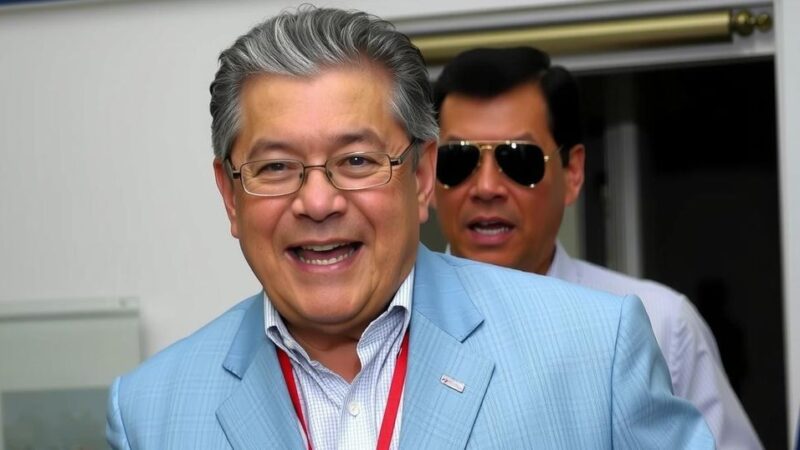Said Ait Mahdi, a Moroccan activist, has been sentenced to three months in prison for leading protests against the government’s earthquake response in Al Haouz. His conviction is criticized by human rights advocates as politically motivated, arising from growing frustration over inadequate recovery efforts following the September 2023 earthquake that claimed nearly 3,000 lives. The government’s commitment of $11.5 billion towards reconstruction has not quelled public dissent, highlighting ongoing inequities and the challenges faced by affected communities.
A prominent Moroccan activist, Said Ait Mahdi, aged 32, has been sentenced to three months imprisonment for his role in leading protests against the government’s response to the devastating earthquake that struck the Al Haouz region in September 2023. Human rights groups have denounced the case as arbitrary, noting that Ait Mahdi’s activism drew ire from authorities amid accusations of mismanagement of recovery efforts that have left many citizens living in temporary shelters. In addition to his prison sentence, he has been ordered to pay over $1,000.
The earthquake, registering a magnitude of 6.8, resulted in the deaths of nearly 3,000 individuals, demolished homes, schools, and vital infrastructure across the region, and left numerous survivors in dire circumstances. Ait Mahdi is the first activist to receive such a sentence following protests that have erupted intermittently, with participants voicing grievances against local officials accused of inadequate recovery management. His attorney, Isaac Charia, indicated that while similar charges typically lead to longer sentences, he was relieved that Ait Mahdi’s term was limited to three months.
Following Ait Mahdi’s sentencing, Civil Liberties advocates in Morocco expressed alarm over his arrest. The Moroccan Association for Human Rights labeled the action as politically motivated, viewing it as retaliation for his efforts on behalf of the affected populations. A coalition of NGOs and leftist political parties accused the government of attempting to “conceal the serious violations” associated with their inadequate handling of the earthquake aftermath, calling for immediate release of Ait Mahdi.
The consequences of the earthquake have exacerbated longstanding regional inequalities, impacting communities predominantly inhabited by indigenous groups who already faced developmental disadvantages. Reports estimate that the natural disaster destroyed over 60,000 homes and 585 schools. In response, the Moroccan government has committed over $11.5 billion towards recovery and reconstruction initiatives, highlighting the urgency of restoring housing and providing financial assistance to those displaced.
Protests have also extended to urban areas, where groups like the Civil Coalition of the Mountain gathered in Rabat to emphasize the slow pace of reconstruction. This coalition has previously hailed Ait Mahdi as “the voice of the oppressed and earthquake victims,” illustrating his significant role in advocating for those impacted.
The case of Said Ait Mahdi is emblematic of the growing tensions between the Moroccan government and civil society, particularly in the aftermath of significant natural disasters such as the recent earthquake. With a magnitude of 6.8, this catastrophe had a dramatic impact on the Al Haouz region, intensifying pre-existing socio-economic disparities. Activists have been vocal in their criticism of the government’s response, alleging that recovery efforts have been mismanaged. Ait Mahdi’s sentencing serves as a focal point for discussions surrounding civil liberties and human rights in Morocco, as advocates highlight the implications of suppressing dissent in the context of political activism.
In conclusion, the sentencing of activist Said Ait Mahdi highlights critical concerns surrounding civil liberties and governmental accountability in Morocco, particularly in light of the recent earthquake’s devastating effects. Human rights organizations decry the politically motivated nature of his arrest, which they believe serves as punitive action against advocates for the rights of earthquake victims. The situation underscores the urgent need for adequate recovery measures and a respectful engagement with those advocating for justice and support in the wake of national tragedies.
Original Source: www.independent.co.uk

